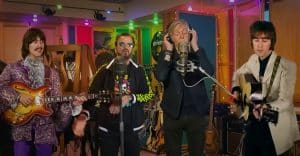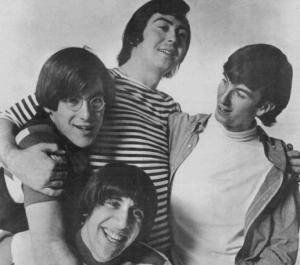Paul McCartney Nearly Joined The Dark Side of the Moon — But Roger Waters Called His Contribution ‘Useless’

via Echo _360 / YouTube
Beyond its groundbreaking music, one of the most memorable aspects of Pink Floyd’s 1973 masterpiece, The Dark Side of the Moon, is the snippets of dialogue scattered throughout the album. Tracks like “Speak to Me,” “The Great Gig in the Sky,” and “Money” feature these short vocal clips, which were recorded by Roger Waters as he wandered through Abbey Road Studios asking anyone he could find a series of questions.
At the time, Paul McCartney was also at Abbey Road, recording his own album, Red Rose Speedway, and was available to answer Waters’ questions. Yet, according to Waters, McCartney’s contributions didn’t make the cut.
The Questions That Made the Album Iconic
Waters’ questions ranged from the simple—favorite colors, foods, and hobbies—to the far darker, touching on death, fear, and violence. Many people at Abbey Road, including studio doorman Gerry O’Driscoll, answered seriously, giving rise to some of the album’s most famous lines, such as:
“There is no dark side of the moon, really.”
McCartney, however, approached the questions differently. Rather than engaging with the introspective tone Waters sought, he tried to perform, adding humor instead of existential reflection.
In The Dark Side of the Moon: The Making of the Pink Floyd Masterpiece, Waters recalled: “He was the only person who found it necessary to perform, which was useless, of course.” “I thought it was really interesting that he would do that,” Waters added. “He was trying to be funny, which wasn’t what we wanted at all.”
A Clash of Styles
It’s not surprising that McCartney didn’t fit the mood. While he is more than capable of exploring darker themes in music, his outlook is generally optimistic and lighthearted, a stark contrast to Waters’ probing questions and the existential weight of the album.
So, while Abbey Road Studios was full of legendary musicians at the time, McCartney’s voice never appeared on The Dark Side of the Moon. Instead, the snippets that did make it captured the haunting and philosophical essence that has made the album timeless.













